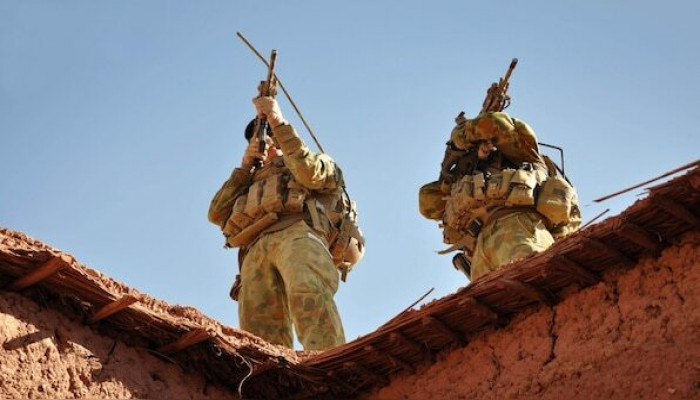Australian military commanders stripped of medals over Afghanistan war crimes allegations
- In Reports
- 02:23 PM, Sep 12, 2024
- Myind Staff
Several current and former Australian military commanders have been stripped of medals following allegations of war crimes committed during the Afghanistan war, Defence Minister Richard Marles announced on Thursday. The decision comes as part of a broader effort to hold commanders accountable for alleged misconduct of Australian special forces between 2005 and 2016, as recommended by Maj. Gen. Paul Brereton's war crimes investigation.
The Brereton report found that approximately 25 soldiers from the Australian Special Air Service Regiment and Commando Regiment were involved in the unlawful killings of 39 Afghans. Marles described these allegations as “arguably the most serious allegations of Australian war crimes in our history,” during a statement to Parliament.
Marles has written to commanders involved in these periods, addressing the medals they received for their service during the time the alleged war crimes took place. However, he did not disclose the number of commanders contacted or their ranks, citing privacy concerns.
The decision to strip the medals has drawn sharp criticism. Martin Hamilton-Smith, chair of the Australian Special Air Service Association, condemned the move as a betrayal of the soldiers’ courage and sacrifice. “The government’s decision overlooks the courageous leadership of these young officers on the battlefield based on unproven allegations that somewhere in a remote village unseen and unknown to these commanders, an unlawful act might have occurred on their watch,” Hamilton-Smith said.
Marles clarified that the removal of medals was not due to specific wrongdoing by the officers. “No one is … suggesting they knew what happened, were aware of it or didn’t act — that’s not the issue,” he told reporters. Instead, Marles emphasised the responsibility that comes with commanding a unit. “When you command a unit, you will receive often the benefits and accolades of what that unit does, and commensurately, you accept the responsibility of that unit in terms of what failings occur,” he added.
Opposition lawmaker Andrew Hastie, a former SAS captain who led troops in Afghanistan in 2013, expressed his belief that political leaders and military hierarchy should also be held accountable for the alleged war crimes. “Our troops were let down by a lack of moral courage that went up the chain of command all the way to Canberra — including in this House,” Hastie said, referring to the House of Representatives. While Hastie did not receive medals for his service in Afghanistan, he emphasised the need for accountability at all levels.
No Australian veteran has been convicted of war crimes in Afghanistan. However, former army lawyer and whistleblower David McBride was sentenced in May to nearly six years in jail for leaking classified information that exposed the allegations. In 2023, former SAS trooper Oliver Schulz became the first veteran to be charged with a war crime, accused of killing a noncombatant in Uruzgan province in 2012.
Additionally, in 2023, a civil court found that Australia’s most decorated living war veteran, Ben Roberts-Smith, likely unlawfully killed four Afghans during his time as a SAS corporal. Roberts-Smith has not been criminally charged.
Image source: First Post







Comments